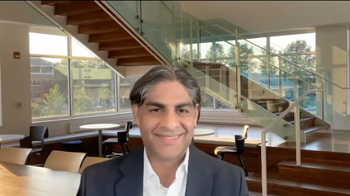
The chief medical officer at Biohaven provided clinical insight on the mechanism of action of BHV-7000, an antiseizure medication, and its supportive phase 1 data. [WATCH TIME: 4 minutes]

The chief medical officer at Biohaven provided clinical insight on the mechanism of action of BHV-7000, an antiseizure medication, and its supportive phase 1 data. [WATCH TIME: 4 minutes]
![Video 4 - "Computed Tomography Perfusion [CTP] In Stroke Management"](https://cdn.sanity.io/images/0vv8moc6/neurolive/22a5299dacb2d682893012688ede0e3cda33a713-1920x1080.png?w=350&fit=crop&auto=format)
Kevin Sheth, MD, discusses the role of computed tomography perfusion amid stroke diagnosis.
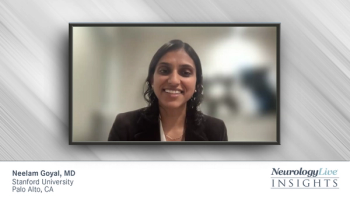
Dr Goyal discusses new and emerging mechanisms of action to treat myasthenia gravis.

A expert discusses atypical presentation of myasthenia gravis and importance of early diagnosis and treatment.
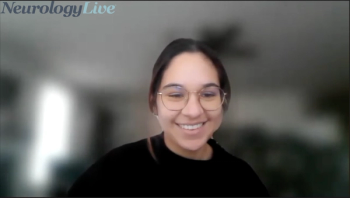
The research project manager at the TSC Alliance provided additional clarity into a new study presented at AES 2023 assessing the links between TSC-associated neuropsychiatric disorders and seizure duration. [WATCH TIME: 4 minutes]
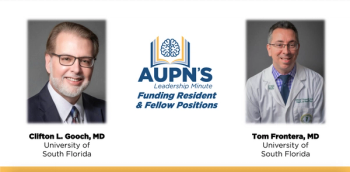
Episode 40 of the AUPN Leadership Minute features Clifton L. Gooch, MD, of the University of South Florida; and Tom Frontera, MD, of the University of South Florida. [WATCH TIME: 9 minutes]
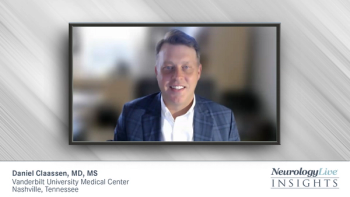
Daniel Claassen, MD, MS, emphasizes the utilization of social workers to reduce the psychosocial burden of HD on both the patient and their family.

An expert neurologist discusses the management of HD, highlighting pharmacologic vs nonpharmacologic treatment.
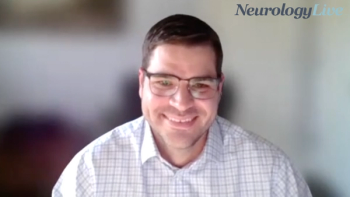
The health economics outcomes research specialist at UCB talked about a retrospective analysis assessing the persistence of fenfluramine (Fintepla) in Dravet syndrome over 12 months, compared with valproate and levetiracetam. [WATCH TIME: 4 minutes]
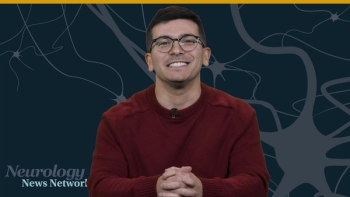
Neurology News Network for the week ending December 9, 2023. [WATCH TIME: 3 minutes]
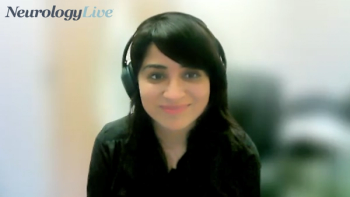
The assistant professor of neurology at the University of Virginia talked about findings from a comprehensive study on epilepsy and mild cognitive impairment, which was recently presented at AES 2023. [WATCH TIME: 5 minutes]
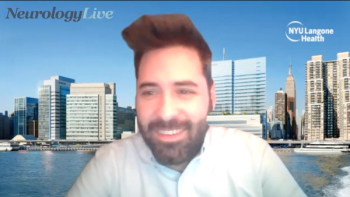
The research scientist at NYU Langone Health talked about findings from preclinical data investigating epileptiform activity in mouse models of Alzheimer disease, which were presented at AES 2023. [WATCH TIME: 4 minutes]
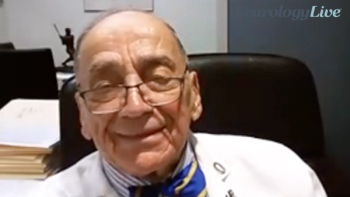
The director of the Ann Kimball and John W. Johnson Center for Cellular Therapeutics at Houston Methodist Hospital talked about the phase 2 study assessing low-dose COYA 301 in mild-to-moderate Alzheimer disease and the focus on inflammation in this patient population. [WATCH TIME: 5 minutes]
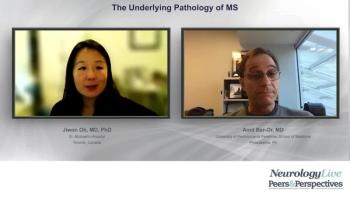
Experts describe our current understanding of the pathology of multiple sclerosis (MS).
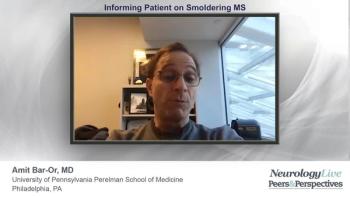
Experts offer their experience on educating patients about smouldering multiple sclerosis (MS).
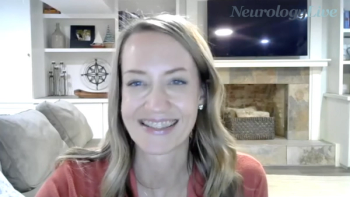
The system vice chair for the department of neurology at Allegheny Health Network talked about the latest preventive and acute treatment options for patients with migraine as well as the progress of research in recent months. [WATCH TIME: 3 minutes]
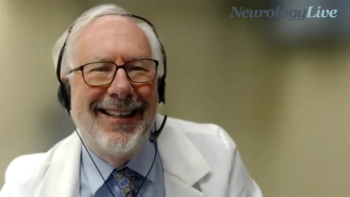
The professor of neurology at Johns Hopkins University School of Medicine talked about the need for education to optimize treatment selection and the continually changing landscape of care for patients with epilepsy. [WATCH TIME: 5 minutes]
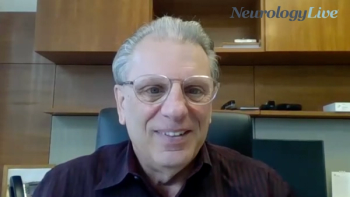
The vice president of medical affairs at SK Life Science talked about findings from a new post-hoc analysis which highlighted the importance of strategically reducing concomitant medications to minimize adverse events of epilepsy treatment. [WATCH TIME: 5 minutes]
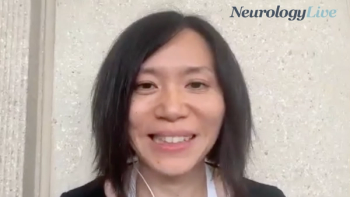
The clinical assistant professor of neurology at Stanford University talked about findings from a study on genetic testing in adults with epilepsy and the importance of access to genetic testing for this patient population. [WATCH TIME: 7 minutes]

Dr Neelam Goyal describes types of myasthenia gravis, its presentation, and differential diagnosis of myasthenia gravis.

A neuromuscular disorder specialist, Dr Neelam Goyal discusses prevalence and pathophysiology of myasthenia gravis (MG).
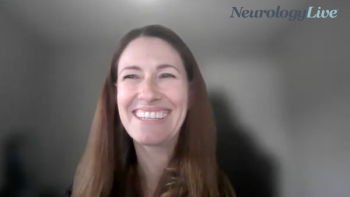
The division director of epilepsy and associate professor of neurology at The Ohio State University Wexner Medical Center talked about the impact of ongoing seizures in patients with drug-resistant epilepsy and the importance of education for emerging opportunities in epilepsy care. [WATCH TIME: 3 minutes]
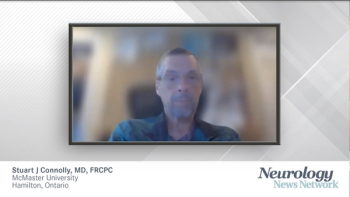
Dr Connolly highlights the cautious patient selection and the significance of reducing hematoma expansion for improved outcomes in cases of intracerebral hemorrhage (ICH) associated with the use of a reversal agent for factor Xa inhibitors.
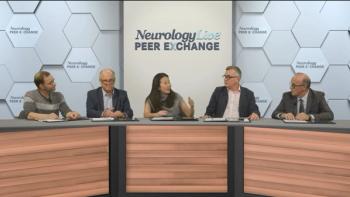
Neurology experts discuss where BTKi’s fit in the multiple sclerosis treatment continuum.
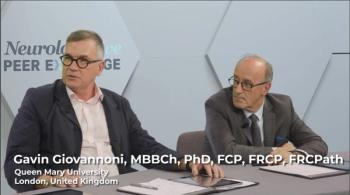
Experts provide insights about what clinical measures they look for when treating patients with BTKis for multiple sclerosis.
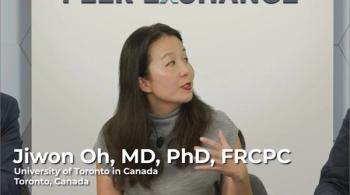
Neurology experts discuss the potential effects of BTKi on chronic active lesions during multiple sclerosis therapies.
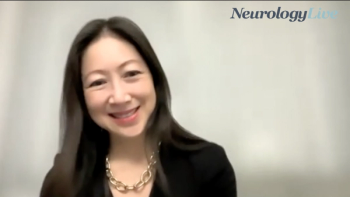
The division chief of pediatric neurosurgery at Ann & Robert H. Lurie Children's Hospital of Chicago talked about findings from a recently published study on long-term survival of pediatric patients with drug-resistant epilepsy which was presented at AES 2023. [WATCH TIME: 6 minutes]

Daniel Claassen, MD, MS, shares his approach to diagnosing patients with HD, as well as communicating with patients about the hereditary nature of the disease.

Daniel Claassen, MD, MS, provides an overview of the pathophysiology and genetic background of Huntington’s disease (HD), a neurodegenerative disorder.
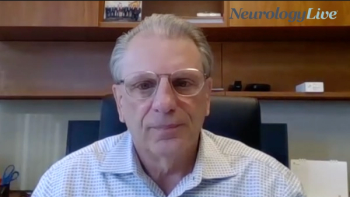
The vice president of medical affairs at SK Life Science discussed how epilepsy remains a formidable challenge in the development of effective therapies to achieve seizure freedom. [WATCH TIME: 5 minutes]